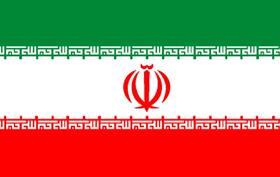
This week, the US announced the imposition of new sanctions targeting Iran’s oil, banking, shipping and other sectors, following president Donald Trump’s controversial decision to withdraw from 2015’s international deal on Iran’s nuclear energy programme.
However, to the disappointment of hardline conservatives in the US, the White House included a list of eight countries that are temporarily exempted from the sanctions: Japan, China, India, Italy, Greece, South Korea, Taiwan and Turkey.
Such a compromise was hailed as a “victory” by Iranian president Hassan Rouhani.
“The fact that today, the US exempts eight countries for buying Iran’s oil, while it explicitly said that it will reduce Iran’s oil sale to zero, is a victory for us,” he said.
The exemptions are set to last for 180 days, according to the White House, although Rouhani has already vowed to break the sanctions, which he described as “unjust and against the law”.
In Iran, some believe the temporary exemption of many of Iran’s biggest oil customers is designed to prevent a sudden increase in the price of oil caused by a drop-off in supply.
The main issue for Iran remains how to get this oil money, as well as oil revenues dating back to former president Ahmadinejad’s time in office, back into the country, with discussions reportedly underway with European countries to create a banking channel for trade in euros.
The EU’s foreign policy chief, Federica Mogherini, issued a joint statement with the German, French and UK foreign ministers expressing deep regret at the reimposition of US sanctions and a determination to continue legitimate trade with Iran.
Critics argue that the new sanctions will hurt ordinary Iranians rather than the government, especially given this year’s dramatic fall in the value of the Iranian currency.
“For some months, we have already been feeling the first effects of the sanctions,” said Nooshin Mohammadali of Tehran-based Zarrin Group. “They have led to the devaluation of the Iranian rial against the dollar, the rise in the price of almost all imported and locally produced and manufactured goods, and inflation.”
Although products including medicine and food are not included in the sanctions, risk-averse foreign banks and companies have in the past avoided all transactions with Iran for fear of being penalised.
Iranian exporters will hope that the return of sanctions will not derail efforts to increase trade to its export markets, including to Vietnam.
Vietnam’s ministry of agriculture and rural development recently officially approved Iran’s request on exporting plant-based agricultural products to the country, having gained all the food safety qualifications set by the Vietnamese government.
Vietnamese prime minister Nguyen Xuan Phúc called for the implementation of bilateral agreements in order to boost trade between the countries and stressed the importance of removing banking obstacles.
The main Iranian products sent to Vietnam between March 2017 and March 2018 included pistachios (25,115 tonnes), figs (9,834 tonnes), pomegranates (22 tonnes) and saffron (3 tonnes).
In addition to these items, Mohammadali also sees potential in various export markets for Iranian kiwifruit, watermelons, apples, grapes and potatoes.



